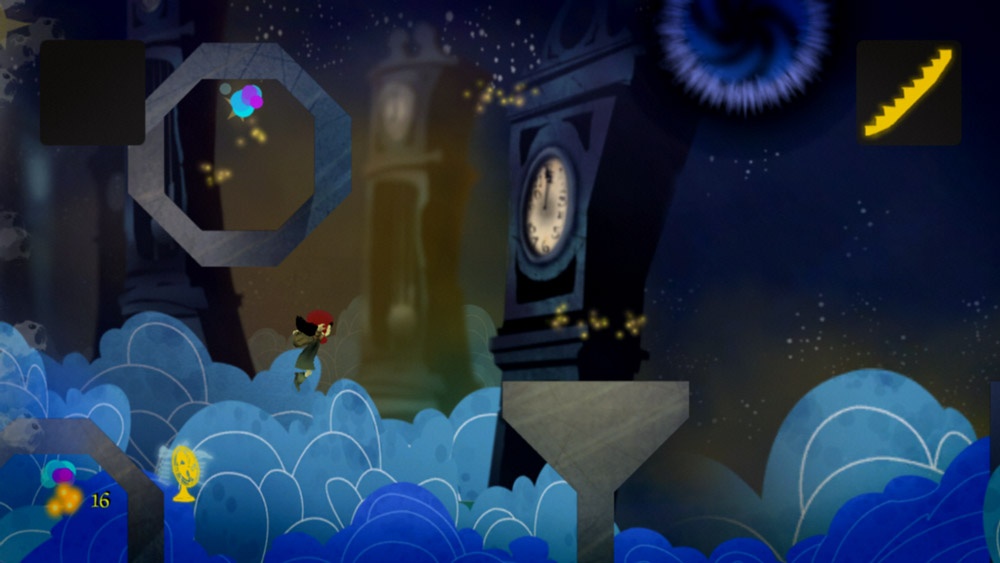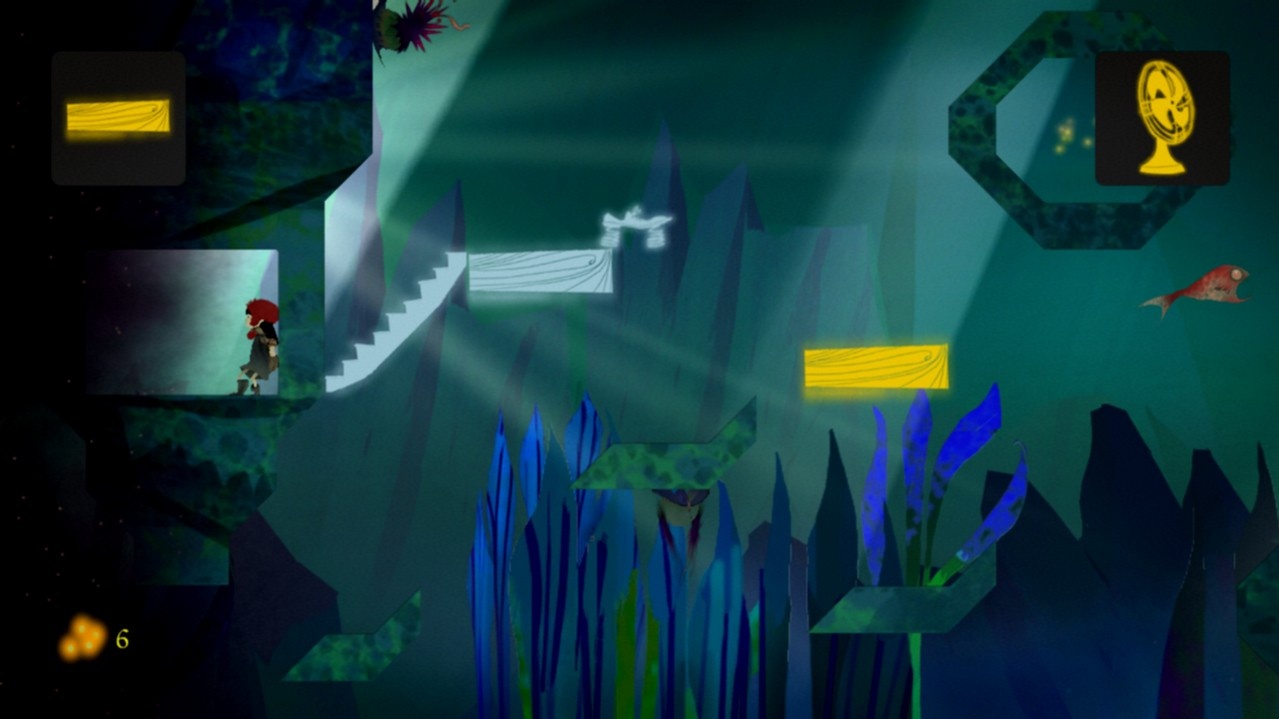It's widely believed that in our dreams, our subconscious minds will sometimes try to confront fears and sorrows that we can't bring ourselves to deal with in waking life. This notion is at the core of Lucidity, the unusual new puzzle game of sorts from LucasArts. But while the concept is a good one and it's aided by lovely visuals, the gameplay just doesn't measure up, and you may find yourself so frustrated with this game at times that you'll have nightmares about it.

Lucidity opens with a brief vignette: Young Sofi, safe at her beloved nana's farmhouse, drifts off to sleep, her head full of fantastical adventures from the book she's been reading. We then join Sofi in her dreams, which begin with a pleasant stroll across the farm but soon wander into darker territory, and it quickly becomes clear that although the landscapes may be only in Sofi's mind, in her dreams she is trying to cope with a very real loss. The story is told through Sofi's diary, its musings filled with the wide-eyed wonder and curiosity of childhood, and through postcards Sofi gets from her nana. It's a subtle but touching story that lends the psychological journey an emotional weight.
Lucidity resembles a typical 2D platformer, but you actually don't control Sofi at all. Instead, our plucky heroine walks unceasingly of her own accord, and like the title characters in the classic game Lemmings, she'll walk into certain doom if you let her. It's up to you to make sure she doesn't march straight into a bottomless pit, step on any barbed wire, or walk smack-dab into the giant snails, frogs, and other creepy crawlies that inhabit her dreams. You're given various objects to place in Sofi's path to help her make her way through her perilous dreamscapes unscathed. These items include planks and staircases for her to walk on, springboards to send her leaping upward, slingshots that throw her forward, fans that can lift her up through the ceiling above her, and bombs to blow up walls and monsters in her path. Should you get something you don't know what to do with at the moment, you can store it in a holding box, but you're limited to putting one item in there at a time. There are moments in Lucidity when everything clicks, when its simplicity is a wonderful asset, and where you can make great use of each piece that comes your way. When this happens, guiding Sofi through the dangerous environment is so effortless you may feel as if you've entered a state of reverie yourself. But these moments are the exception to the rule. Far more often, the dreamlike visuals and music are completely at odds with the maddening experience of playing the game.
The sequence of items is randomly generated, so you can't devise a single strategy to get through tricky areas. Instead, you need to improvise each time based on what you get. In theory this seems like a good idea, keeping the gameplay fresh by requiring you to think on your feet each time. But the randomness has its drawbacks. There will be times when Sofi is caught against a wall, and only a specific item--perhaps a bomb to destroy the wall, or a fan to lift her up to the next level--will let her proceed. Your only option in this position is to keep fitting the slingshots, planks, and springboards into the environment wherever you can until you get the item you need. In the early stages, this is just an annoyance. In the later acts, however, darkness nips at Sofi's heels, giving you just a few moments to extricate Sofi from her predicament before she is consumed. In these instances, the randomness of the game can seem fickle and cruel.
Lucidity is also surprisingly challenging, even punishing at times. Navigating Sofi through some of the more treacherous levels requires quick, flawless placement of the items you're dealt. (A healthy dose of luck certainly doesn't hurt either.) When things are happening quickly, it's easier to put an item right where you need it--to place a plank beneath Sofi, rescuing her as she potentially plummets to her death, for instance--with the mouse or keyboard than with a thumbstick. For this reason, the PC version is clearly the better choice. Regardless of which version you go with, though, you're sure to find yourself cursing the uncompromising difficulty as you're sent back to the start of a level time and time again as the result of the smallest of slipups.
From an audiovisual standpoint, Lucidity is gorgeous. The farmlands, undersea landscapes, and gloomy forests aren't realistic or detailed, but they are very evocative, like the art in a beautiful children's book, and they come alive in the imagination. And the way Sofi animates speaks volumes about her personality. She swings her arms with a uniquely childlike enthusiasm, undaunted as she travels through the often scary territory of her dreams. It's endearing to behold, making you want to see her safely to her journey's end. However, the ability to zoom out a bit would have been helpful. As it is, there are times when Sofi is falling down and you can't tell if a safe landing or instant death awaits below. The music is truly affecting and suits the story perfectly, with a tender piano melody that may stay with you long after you've stopped playing.

The 27 story levels might take anywhere from three to six hours, depending on your skill. If you're really craving a challenge, you can return to levels again in an attempt to collect all of the fireflies scattered throughout, which is sure to take a very long time. Collecting these gives you access to an additional 16 bonus levels. A game that can be completed in three hours may sound short, but most will probably greet the game's ending with a sense of relief rather than a desire to keep on playing. When you're done with Lucidity, you'll feel as if you've been on a haunting and memorable journey through the psyche of a young girl. Unfortunately, the gameplay rarely contributes much enjoyment to this experience and often operates at direct odds with it. Some may find the music, visuals, and poignant story enough of a draw to make putting up with Lucidity's flaws worthwhile, but those wonderful qualities deserved a much better game.